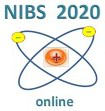Speaker
Description
Due to reliability issues in using cesium (Cs) for efficient hydrogen negative ion production in ion sources for neutral beam injection (NBI) systems in fusion research, many researchers have explored Cs-free alternatives to Cs for a future DEMOnstration power station (DEMO) NBI system. The Korea Atomic Energy Research Institute (KAERI) recently launched a new project in collaboration with Seoul National University (SNU) in order to identify an efficient Cs-free negative ion source based on the volume production mechanism, not only for fusion application, but for other applications (e.g., semiconductor, space propulsion, and accelerator). In this project, we attempt to improve efficiency of the volume negative ion source by introducing plasma pulsing. The plasma pulsing, which is also called temporal filter, refers to a method of modulating power that sustains the plasma and consequently the electron energy. Supplying negative ions at high densities by the pulsing is, however, inherently transient and its duration is short. In view of a future DEMO, a significant drawback of the pulsing is being unable to continuously supply the negative ions to an extraction system. To remedy the drawback, and consequently to develop a novel promising Cs-free alternative, we devised a multi-pulsed ion source. The multi-pulsed ion source included more than two plasma sources and magnetic filters operates with an alternating pulsing sequence of the plasma sources. The temporal and magnetic filters named spatiotemporal filters may enable this ion source to continuously supplying the negative ions, leading to the development of the efficient Cs-free negative ion source. In this presentation, the overview of the Cs-free negative hydrogen ion source project at KAERI, the new ion source concept, and its preliminary experimental results will be presented and discussed in detail.

